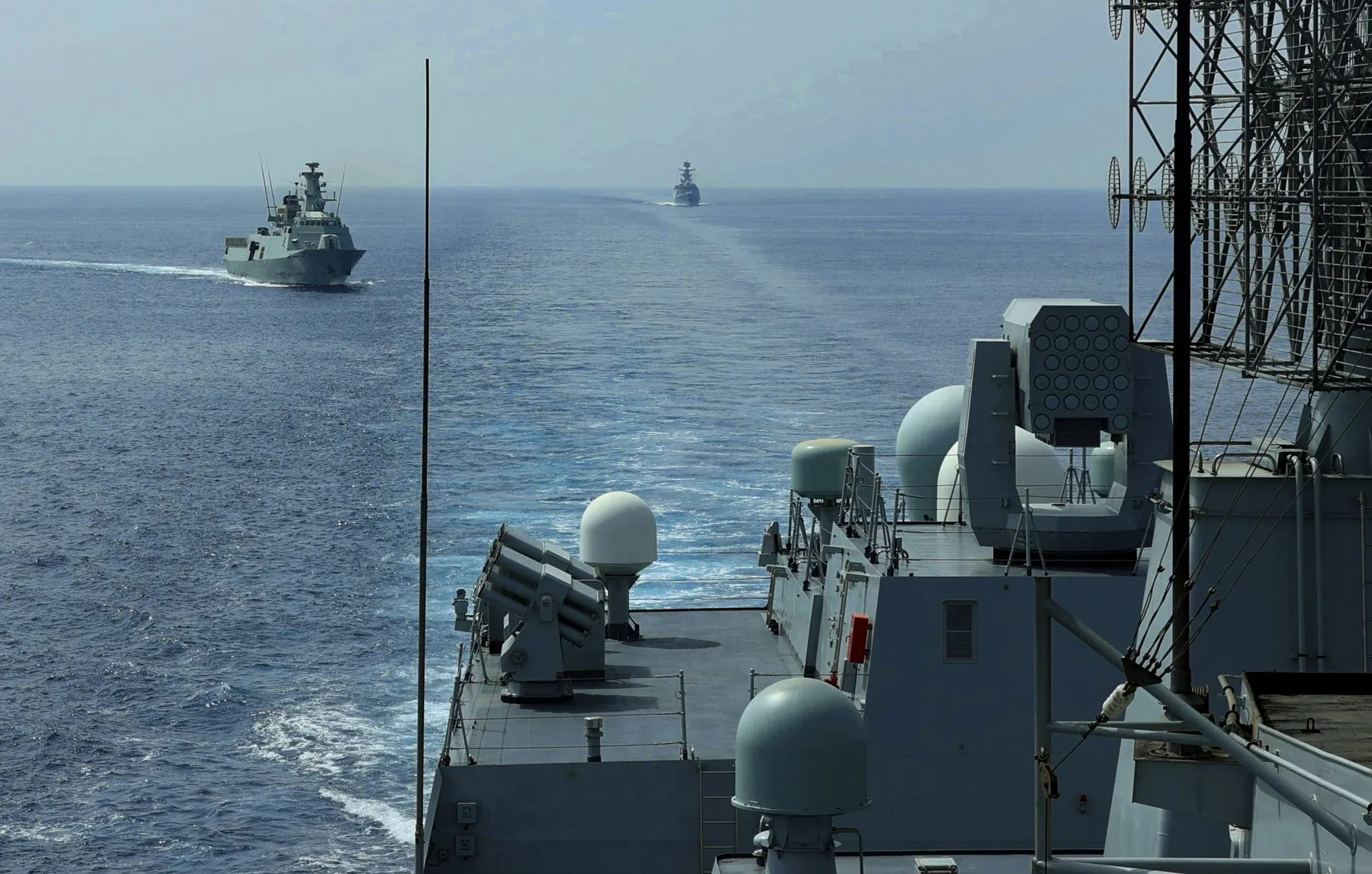Strategic Maritime Maneuver: China Positions Six Warships in the Middle East Amidst Escalating Tensions
In recent times, the Middle East has found itself at the epicenter of escalating tensions, with the Israel-Hamas conflict brewing fears of an all-out war. Amidst this tumultuous environment, China has made a significant move, deploying six warships from the 44th naval escort task force to the region. This article

In recent times, the Middle East has found itself at the epicenter of escalating tensions, with the Israel-Hamas conflict brewing fears of an all-out war. Amidst this tumultuous environment, China has made a significant move, deploying six warships from the 44th naval escort task force to the region. This article delves into the intricacies and implications of this strategic maneuver, unraveling the layers of China’s involvement and its potential impact on the geopolitical landscape.
A Calculated Deployment
China’s foray into the Middle East with its naval force is not an impulsive act, but rather a calculated deployment, intertwined with routine operations and friendly visits. The task force, originating from the People’s Liberation Army Eastern Theatre, includes the Zibo, a Type 052D guided-missile destroyer, the frigate Jingzhou, and the integrated supply ship Qiandaohu. Despite the backdrop of heightened tensions, China has maintained that its presence in the Middle East serves as part of its routine escort mission, highlighting a commitment to fostering friendly relations with countries in the region.
Engaging in Diplomacy and Collaboration
During their deployment, Chinese naval forces have actively engaged in diplomatic and collaborative activities. A notable example is their visit to Oman, where they participated in a joint exercise with the Omani navy. This interaction reflects China’s willingness to build military-to-military relationships, fostering an environment of mutual understanding and cooperation. Furthermore, these engagements serve as a testament to China’s diplomatic approach, opting for peaceful interactions and shared experiences, as exemplified by the organized basketball game between sailors from both countries.
Addressing the Israel-Hamas Conflict
As the Israel-Hamas conflict intensifies, China’s leader, Xi Jinping, has voiced a clear stance, advocating for a two-state solution as the “fundamental way out” of the ongoing war. He emphasized the urgency of establishing a ceasefire to prevent further escalation and a potential humanitarian crisis. This position underscores China’s commitment to peace and stability in the region, contrasting with the military ramp-up observed from the United States, which has significantly increased its firepower in the Middle East.
Drawing a Distinction: China’s Non-Interference Policy
While China’s naval deployment occurs amidst a time of conflict, it is crucial to draw a distinction between China’s actions and those of other global powers. Unlike the United States, which has significantly bolstered its military presence in the region, China maintains a policy of non-interference, opting to engage in routine military operations and diplomatic efforts. This approach aligns with China’s long-standing principle of non-interference in the internal affairs of other countries, a stark contrast to the more aggressive military postures observed from other global powers.
Navigating the Future: China’s Role in the Middle East
As the situation in the Middle East continues to evolve, China’s role in the region remains a subject of close scrutiny. While its naval deployment is framed within the context of routine operations, the strategic implications cannot be overlooked. China’s presence serves not only to fulfill its commitment to maritime security but also to establish itself as a responsible global actor, committed to peace and stability. As the waters of conflict continue to churn in the Middle East, China’s strategic navigation through these tumultuous times will undoubtedly leave a lasting impact on the geopolitical landscape.




